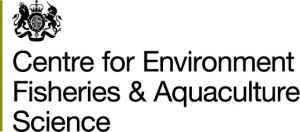This project commenced at the beginning of September 2018. The purpose of this project is to expand our knowledge of key commercial lobster species ecology, to review existing data, legislation and current management practises and make recommendations to ensure long term sustainability of St Helena’s lobster populations.
This project will allow us to monitor the movement and behaviour of a selection of fifteen lobsters with an acoustic telemetry device that will be fitted to the top of the lobster’s carapace. It is also proposed that a monthly tag and release programme would be set up for the two lobster species. (Brown spiny lobster and endemic Red slipper lobster). The lobsters will be caught by hand and collected either during underwater dive surveys or of a mobile lobster pot network along the coast where these lobsters will be taken to the surface to be measured, tagged with one conventional T-bar tag and various biometrics, and their sex and maturity data taken before being released back into the water. Monthly night dive surveys will also be conducted to determine abundance, distribution and habitat association. As well as this the activity, position, substratum type and coverage, sex, carapace length and the presence/absence of eggs will be noted.
A publicity campaign including a reward scheme will also be put into place for the tagging programme. This will insure a high return rate from rock fishermen as well as landed lobsters at the commercial where the lobsters will be re-sampled for biometrics. A survey will also be conducted by the project manager of local rock and commercial fishermen through a combination of one-to-one interviews and questionnaires. The data collected from this will be summarised to evaluate and quantify the past and present lobster fisheries at St Helena. The project manager will also review relevant current polices and legislation about commercial lobster fishing to identify any areas that needs improving. New and existing data will be combined to model the long-term viability and sustainability of lobster populations under different management scenarios and presented to key stakeholders for agreement and adoption by SHG.
Our Project Partners
The Centre for Environment, Fisheries and Aquaculture Science (CEFAS)
 The Centre for Environment, Fisheries and Aquaculture Science makes an important contribution to securing healthy and sustainable marine and freshwater environments so that current and future generations can prosper. Our vision is to make a real difference for society, as recognised leaders in marine and aquatic science.
The Centre for Environment, Fisheries and Aquaculture Science makes an important contribution to securing healthy and sustainable marine and freshwater environments so that current and future generations can prosper. Our vision is to make a real difference for society, as recognised leaders in marine and aquatic science.
As the UK’s most diverse applied marine science centre, we help to shape and implement policy throughout internationally renowned science and collaborative relationships that span the EU, UK government, non-government organisations, research centres and industry. Our work takes us from freshwater to the open ocean, and includes both wild and farmed fish.